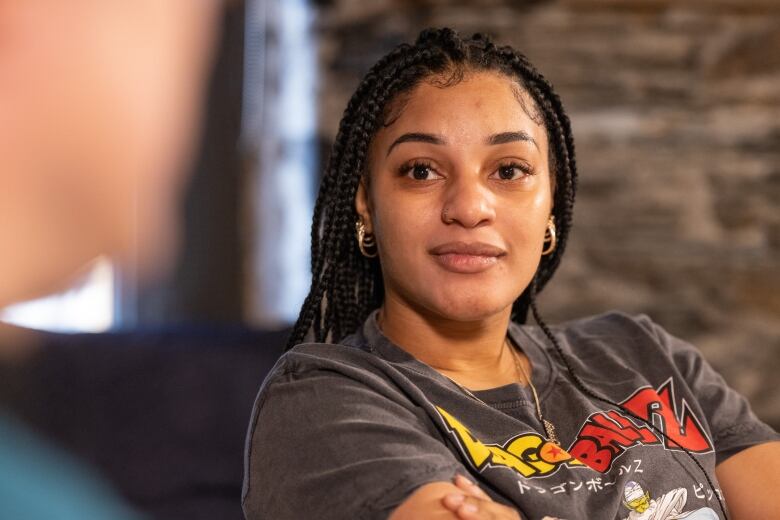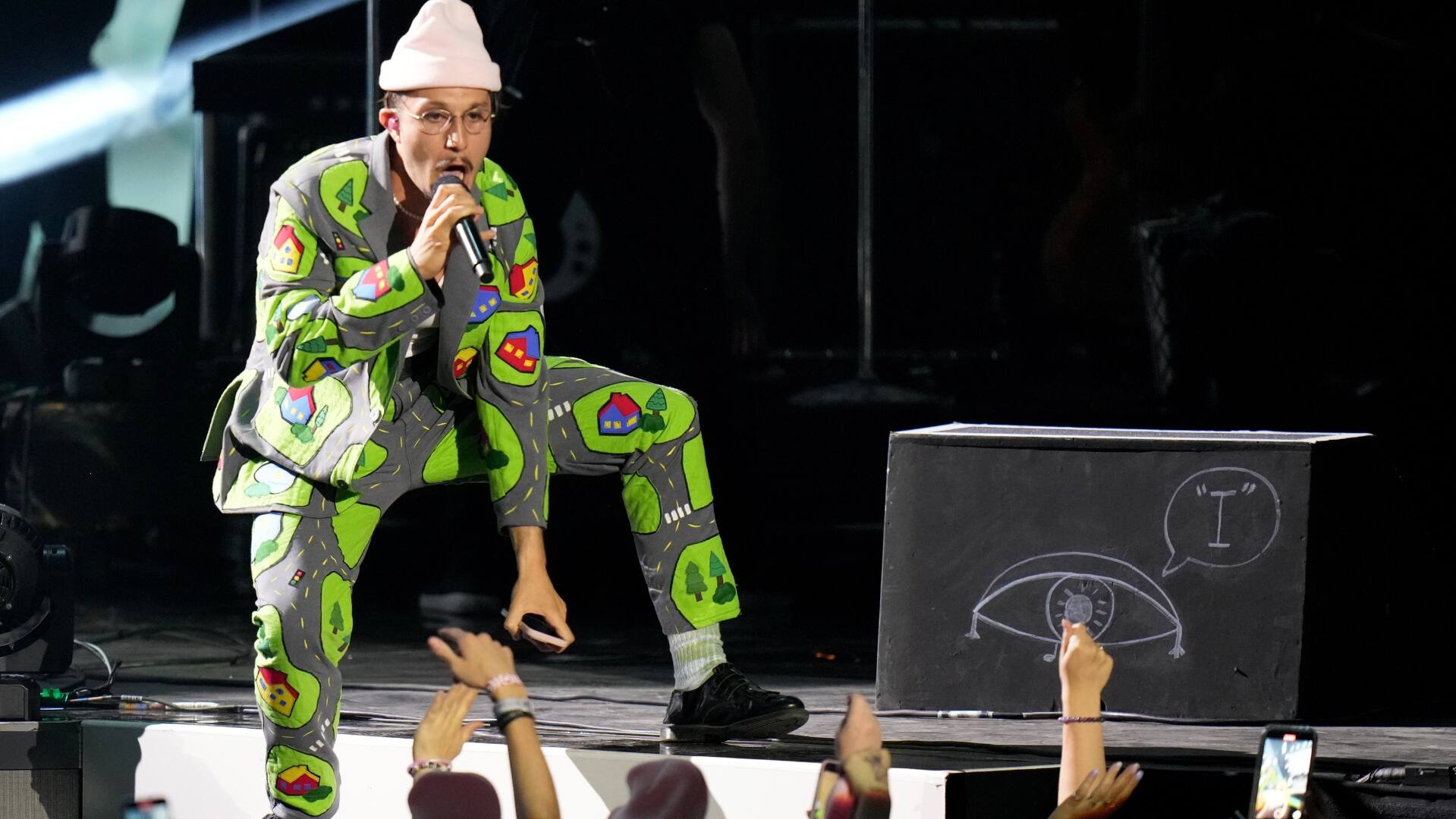Weeks after what may turn out to be the actual song of the summer dropped on streaming platforms, then exploded on TikTok, we’re no closer to finding out who made it, exactly how or why.
The mystery surrounding it is based around a specifically new problem in the world of music, as the men behind the voices on Heart On My Sleeve weren’t actually involved with the song’s creation at all. Though Drake and The Weeknd are unmistakably featured on the song that wracked up millions of views and streams, they were seemingly only added to the track with artificial intelligence (AI), capable of reproducing vocals without the artists’ actual participation or consent.
Taking advantage of that, the mysterious TikTok account behind the song, Ghostwriter977 (mysterious both in terms of who exactly is behind it, and how it achieved fame so quickly) supposedly chose to go the easy route to include those musicians — hoovering up the many, many samples of their musical performances, and then simply typing out words for a computer to reproduce.
As to the result?
“I think this is one of the first times where I truly felt that I was losing my grasp on reality because it really sounds very legit,” said Jacques Morel, a freelance music reporter. “We are vastly approaching this uncanny valley where we’re not going to be able to know what’s a deep fake and what’s real.”
A song said to be by Drake and The Weeknd racked up more than 600,000 streams on Spotify alone before one of the labels had it pulled. Claims that the music was generated by artificial intelligence are creating waves in the music industry.
How close we already are is up for debate. The actual genesis of Heart On My Sleeve is still open to interpretation: as Verge noted, silence from Drake and The Weeknd, a suspicious response from their management and the incredibly high production level of an otherwise completely unknown creator suggest a potential publicity stunt.
But regardless of where it came from, the eerie accuracy of the AI’s recreation is already leaps and bounds beyond the previous attempts already crowding social media, and is a chilling wake-up call for regulators and artists alike worried about how laws designed for copying will cope with computers infinitely better at it than any human could hope to be.
Of course Heart On My Sleeve isn’t the first time AI or science innovations have created controversy in the creative arts. From AI nearly winning a novel writing contest in 2016, to ChatGPT upending high school essay assignments today, to the blissfully fading controversy of NFTs in the visual arts industry, big tech has had its eyes firmly set on art for a while. As we previously reported, that can be because Silicon Valley inventions are a solution looking for a problem, and it is easier to implement them in art industries before expanding to people’s everyday lives.
At the same time, it’s not even the first viral vocal copy out there. Alongside versions of Hey There Delilah by a fake Kanye West and Cuff It by an AI Rihanna, a raft of skits involving everyone from former U.S. Presidents Donald Trump, Barack Obama and — you guessed it — Drake have gained millions of views over the past few months.
And going back into the annals of hip-hop, Morel admits that it has always been somewhat about copying and borrowing. From the practice of sampling to rappers copying each others’ flow, influence has been the backbone of the genre since its inception. But in this case, it’s not just more of the same.
“The thing that separates it is that it’s actual people — these are actual people that you are sampling,” he explained. Instead of relying on the limited capabilities of humans to replicate a talented artist’s style and sound, this form of borrowing has become borderline perfect. Real life artists can copy and take from other artists’ work to an egregious degree, but they’re often limited by their abilities — for AI, he said, that’s not the case.
“I feel like AI is just outside of that gap because it’s not human,” he said. “At least Vanilla Ice was a real person, you know?
The Spotify Wrapped social media trend is helping some Canadian musicians receive a boost, by reminding fans of the tunes they loved that year.
It’s a troubling update in an industry perpetually upended by changes: tanking physical sales, unrealistic demands of touring, COVID-scuttled live shows, and Ticketmaster surge pricing have all seemingly conspired to push musicians to the fringes of subsistence.
“Copyright is far behind in this area,” said Burt Gidaro, an entertainment lawyer at Edwards Creative Law. While existent copyright laws do somewhat adequately protect the use of someone’s likeness or voice against their will, they were not designed to protect against artificial reproduction of either. As AI systems “learn” from creators’ existing bodies of work, then allow others to directly use elements of it, Gidaro said it constitutes “some kind of transformation” — a common defence against copyright infringement.
That now outdated view of what constitutes copying, Gidaro’s colleague Michael Duboff added, is where current laws will need updating.
“I think we’re going to see a lot of developments in this area with enforceability, and consequences from violating someone’s personality rights,” he said.
Efforts to update
There have already been movements to push that change. Even before Drake semi-jokingly took issue with an AI-created verse of his voice added to an Ice Spice song, Universal Music Group requested that Spotify and Apple Music preemptively keep AI from accessing its artists’ music.
And currently, an open letter by a number of academics and business leaders is strongly urging the Canadian government to move forward on Bill C-27 (Artificial Intelligence and Data Act, or AIDA) which would regulate how AI systems are developed and deployed.
Noting that the adoption of AI is far outpacing legal guard rails to protect both those who use it and those whose work AI is trained upon, the signatories noted that without committed support the act won’t be in place anytime soon.
“The window is rapidly closing, and further postponing of action would be out-of-sync with the speed at which the technology is being developed and deployed,” they wrote.
If you’re concerned about AI art theft, please sign on to our open letter to the Minister responsible for this legislation. <br><br>We are urging him to fix this AI law and protect Canada’s artists & content creators from theft: <a href=”https://t.co/u7rqrBaQIc”>https://t.co/u7rqrBaQIc</a>
—@blairasaservice
At the same time, another open letter from Canadian artists is requesting that the act be strengthened.
As written, they said, AIDA “would impose unjust and undue material, psychological, economic, and legal burdens upon artists and creators in attempting to seek legal remedy, financial compensation, or other recourse in the event that their intellectual property rights are violated by generative AI systems.”
And when it comes to music, some artists are already frightened. Canadian musician Reeny Smith says that seeing the accuracy of Heart On My Sleeve‘s musical performances gave her concern for her place in the industry.

“It’s very scary to think about,” she said. “to happen to someone like Drake — it’s unreal, just thinking about the people who may not have that same platform that he has.”
And while preventative and protective measures like AIDA could help this from becoming the norm, Smith still says she has her reservations.
“It’s always in the back of your head, ‘Oh, what if this thing does stick?'” she said. “What if this is the future of music?”







More Stories
Apocalypse now: Why movie and TV fans love the end of the world | CBC News
I Don’t Know Who You Are is a visceral race against time for a critical drug | CBC News
From pop to politics, what to know as Sweden prepares for the 2024 Eurovision Song Contest